Virtualization = High Availability

With the growing use of server virtualization technologies, some organizations have looked at using the add-on high availability features of virtualization platforms to improve the availability of application running in virtual machines. Essentially the same as clustering, but for virtual machines, virtualization-based high availability solutions don’t require application modification or failover scripting, but they are still costly to implement and require ongoing tuning and management. And even then, after setting it all up, they still don’t fully protect your transactions and data.
Since virtualization-based HA is essentially accomplished by clustering together virtual machines, its capabilities are limited like clustering in general. You are still trying to recover your virtualized IT services after a failure has occurred. And any transactions that take place while the system goes down are lost. Any data in the process of being written can be corrupted or lost.
Advantages:
- Decrease the number of Servers to maintain.
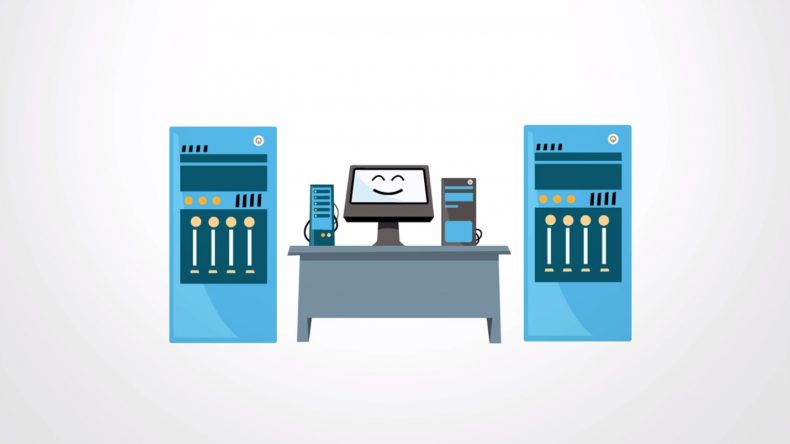
- With high availability, the application can recover faster than ever.

Disadvantages:
- When it comes to your business critical application, even a little downtime in wrong time can spill disaster, a business can lose load of revenue, reputation could be damaged, and can be a matter of life and death.
Critical App
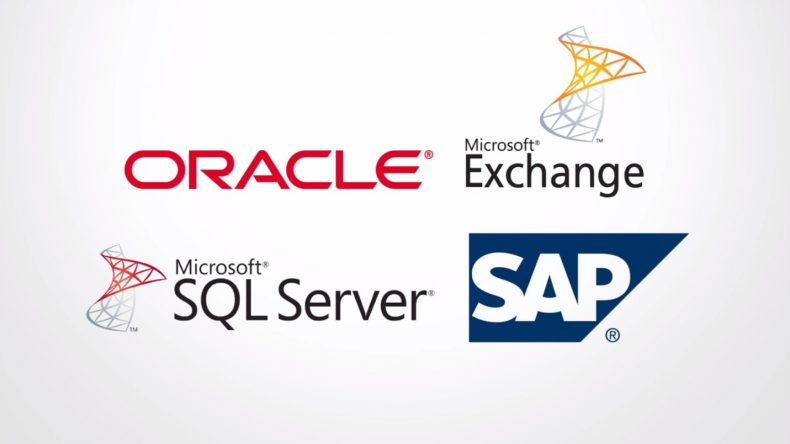
Loss of revenue

Life and Death

- Loss of in-flight transactions, loss of in-memory data and loss of data or data corruption.
Cost of downtime
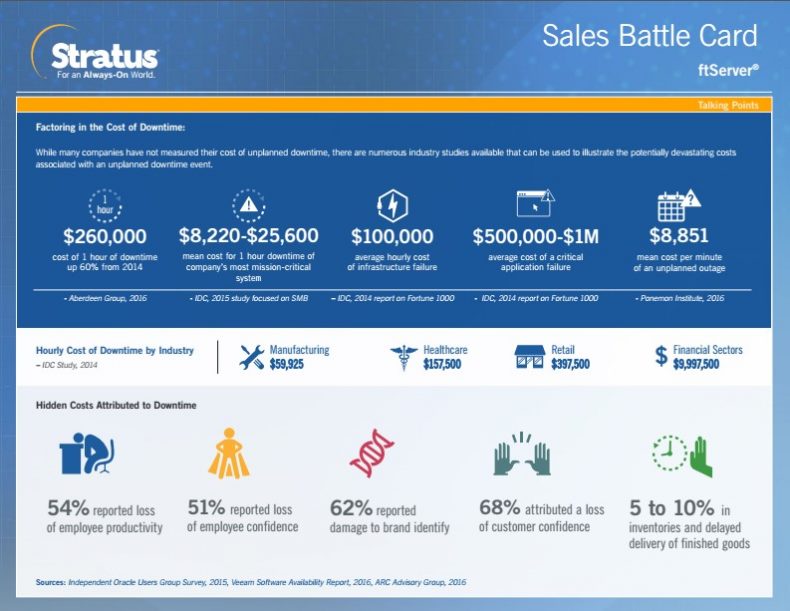
Conclusion: High availability is NOT always enough, you need Absolute availability from Stratus: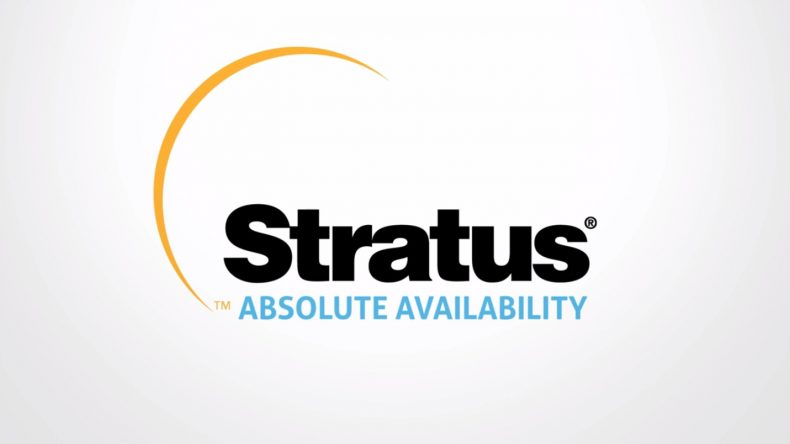
Stratus ftServer = Absolute Availability
- Traditionally high availability means that when hardware fails application go down hopefully for only a few minutes. Absolute Availability means even when hardware fails, your application will always up and running.
- No data loss and no interruption.
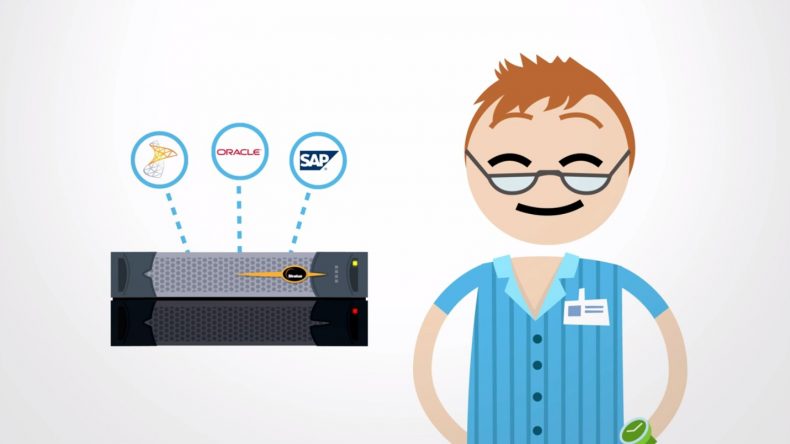
How we do it?
Every single ftServer system is made up of two identical halves – two identical customer replaceable units, or CRUs – each with their own processors, memory modules, and disks. Identical Stratus application specific integrated circuits on each CRU, or FPGAs, run Lockstep firmware, that ensures the exact same operation takes place at exactly the same time on each processor. We call this running in “locked step”.
If a component in one CRU fails, there’s no failing over to another system, because the other CRU just continues to run without any interruption. Redundant data paths, or multi-path I/O buses, ensure data is also synchronized on both CRUs. This is why no transactions are ever lost, and no data is lost or corrupted. Even data in flight. It’s because the system actually never stops running.
Furthermore, implementing a continuously available service is not dependent on additional failover scripts. You also don’t need to modify your ISV applications to make them aware that they’re running in a clustered environment, or use any specialized software. The fault tolerant capability is built into ftServer by combining the AUL with industry-standard hardware and software.
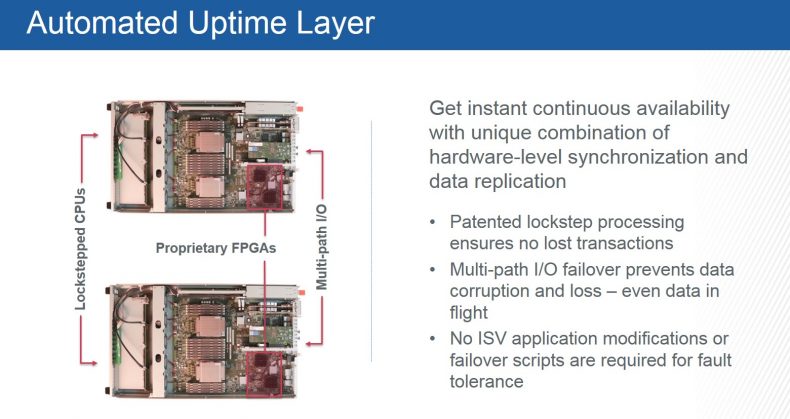
Both units are perfectly synchronized and work together in “Locked Step”.
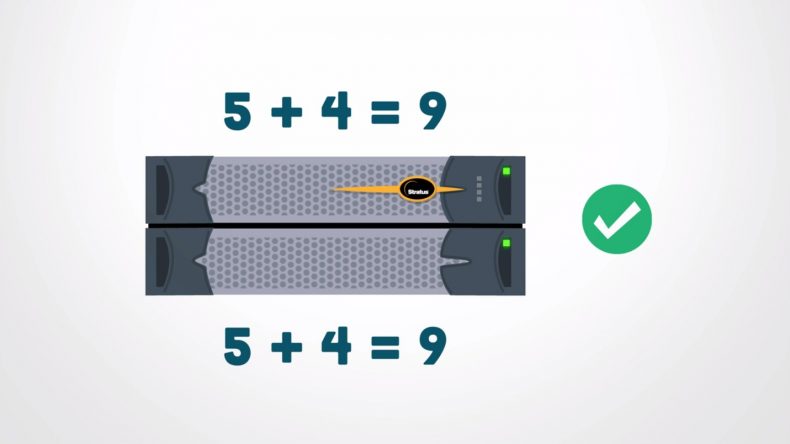
Only Stratus ftServer offers true failure protection, rather than recovery from a failure. Only Stratus prevents downtime, and ensures all transactions are processed, with no data corruption or data loss.
And it does this without requiring any changes to your applications to make them cluster-ware, or requiring any failover scripts to be written.
Stratus ftServer doesn’t require any special software, or any special skills, and is more affordable in the long run to purchase and use than complex clusters with multiple hardware and software components.
And our single system, with continuous availability built-in, is much easier to set up, configure, manage, and service, than a complex system with multiple servers, switches, storage arrays, and availability software.
What sets ftServer apart from other continuously available platform solutions, is its simplicity. ftServer is simple to deploy, simple to manage, and simple to service.
This fully integrated system quickly delivers continuously available applications and data protection. Rapid deployment and superior serviceability help you maximize revenues, production quality, and resource efficiency.
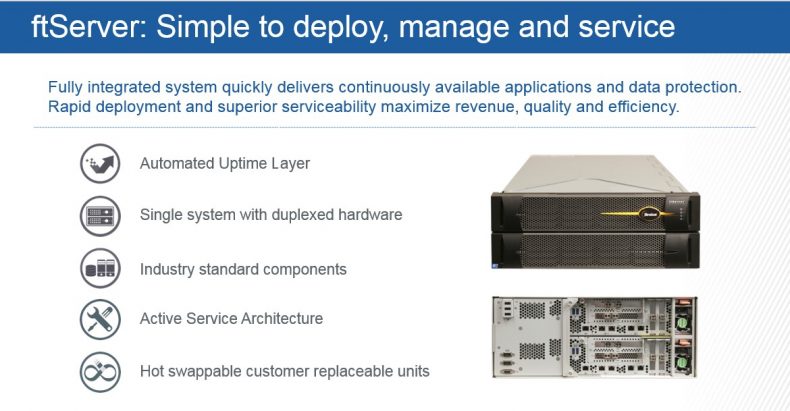
Conclusion: For an application that protects revenue, reputation or life accept nothing less than Absolute availability, Stratus ftServer is what you need.
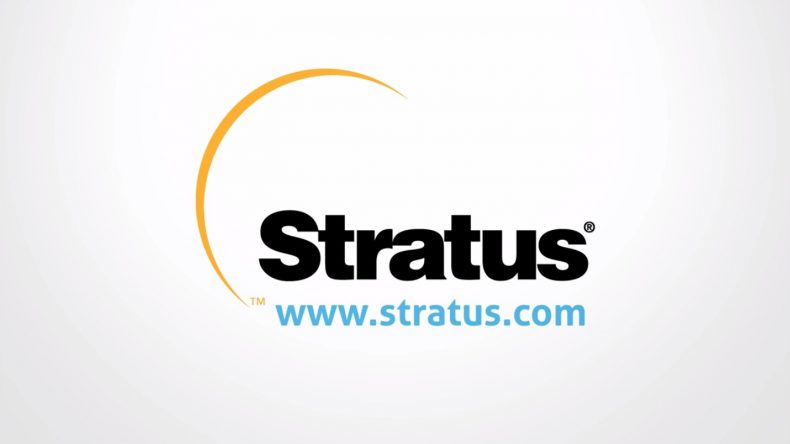
Written by Dionaro (Dion) Orcullo
System Specialist
For more information, please contact marketing@stream.co.th or call 02-679-2233








Leave a Reply